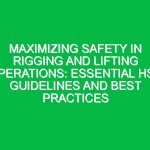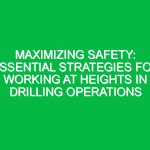Mercury NZ Trials Self-Drive Vehicle for Worker Safety
Mercury NZ, one of the country’s largest electricity providers, has entered into an agreement with WorkSafe New Zealand to trial a self-drive vehicle aimed at enhancing worker safety in the workplace.
The Incident
In response to an incident at its Rotokawa power station in July 2021, where an uncontrolled release of geothermal steam occurred, Mercury NZ has taken proactive steps to improve safety measures. The incident, known as a ‘steam hammer’ event, could have resulted in severe harm to workers if they had been present in the area at the time.
WorkSafe Findings
A WorkSafe investigation revealed shortcomings in plant installation decisions, risk assessment, and communication between offsite control room operators and onsite personnel. The incident highlighted the importance of businesses meeting their responsibilities under the Health and Safety at Work Act.
Enforceable Undertaking
As part of the commitment to enhance safety, Mercury NZ has applied for an enforceable undertaking with WorkSafe. The plan includes trialling a self-driving vehicle for plant inspections, implementing a leadership program to promote a proactive safety culture, providing training on hazard awareness, and sharing resources and lessons learned from the incident with the industry.
Benefits of Self-Drive Vehicles
According to WorkSafe’s regulatory support manager, Catalijne Pille, emerging technologies like self-drive vehicles have the potential to significantly improve health and safety practices in the workplace. The data insights from these vehicles can aid decision-making and contribute to continuous process improvement.
Statement from Mercury
Mercury’s Executive General Manager Generation, Stew Hamilton, emphasized the company’s commitment to health, safety, and wellbeing. The enforceable undertaking presents an opportunity for Mercury to enhance its safety performance and achieve its goal of safety citizenship. The program is expected to be completed by February 2026 and will involve education, coaching, autonomous inspections, sharing of learnings, donations to emergency service providers, and support for a health and safety scholarship.
Conclusion
By investing in safety measures and embracing new technologies like self-drive vehicles, companies like Mercury NZ are demonstrating their commitment to ensuring the health and safety of their workers. Continuous improvement in safety practices not only benefits employees but also the community and the industry as a whole.
Read more about geothermal safety
Reference: Mercury commits to $1.15m safety spend


